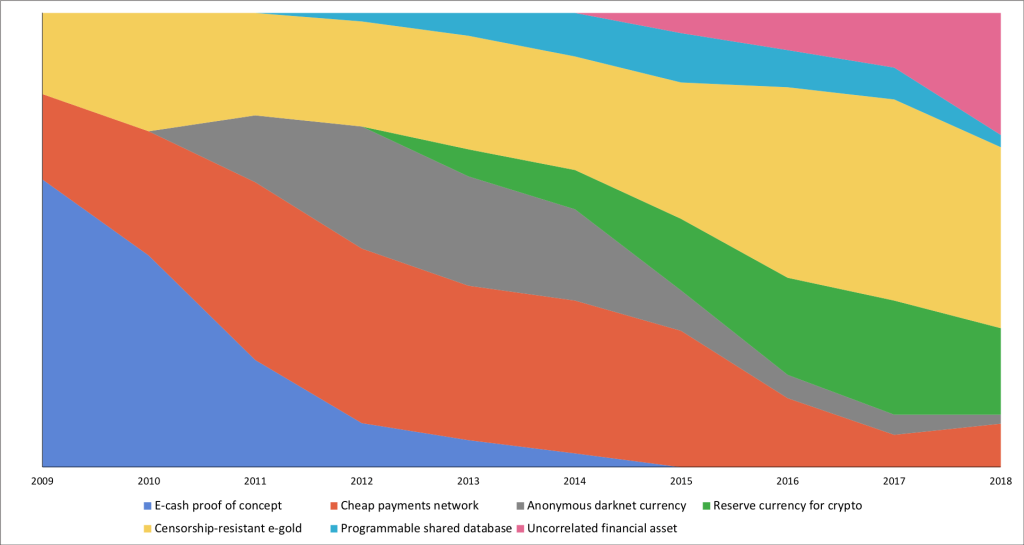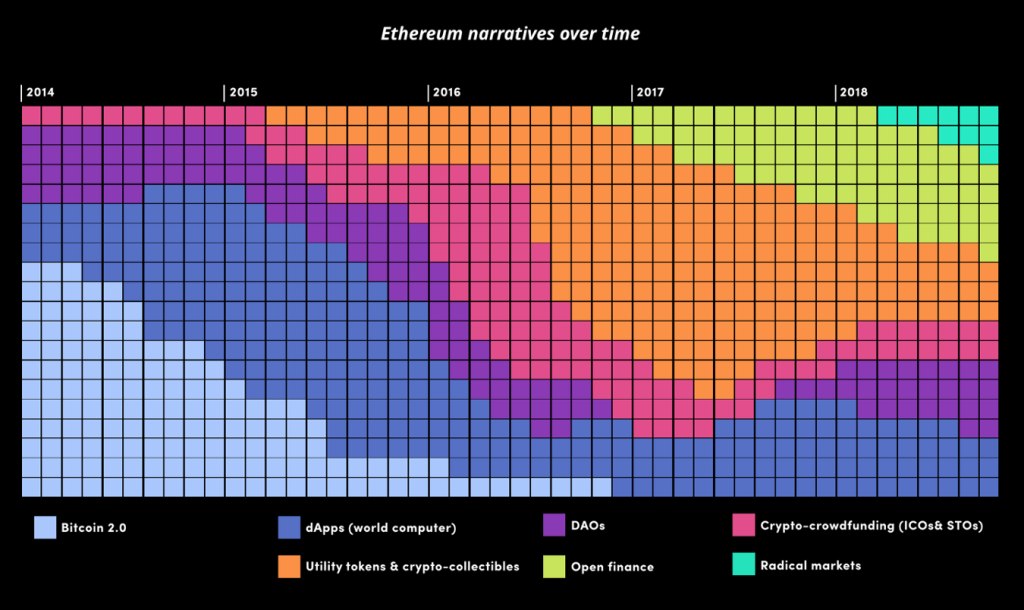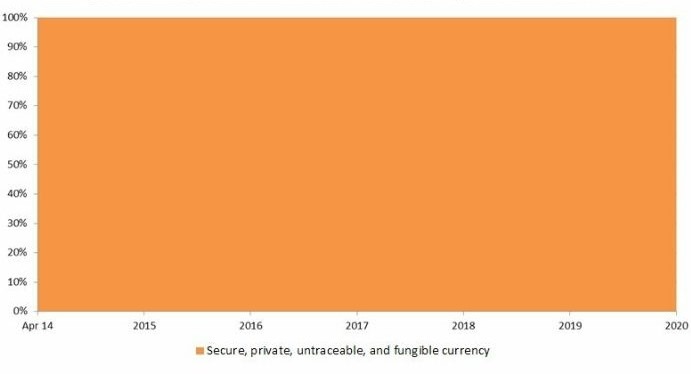You think your life is private and so it should be. We are all entitled to a wondrously fulfilling life that is free from unwanted external influences. This, in essence, means that the life we live is the life we have chosen from our own free will – it is the confluence of all our thoughts and motivations.
We rarely ever think about the trifecta of money, freedom, and privacy. It just never crops s up in conversation and consequently, it means we are unable to decipher the finer parts of the contradictions. If we go back in time to when cash was popular, we never truly questioned the lifecycle of that dollar, pound, or euro note. It was handed over to us as a change for a transaction and so it has now become ours. The simple fungibility of the currency meant that we accept what was given because it was of equal, identical, and of mutual interchangeable value. With that unit, have we ever pondered, where did those alloyed coins come from? Who has handled these units? And was all sound before handing it over to me?
Blockchain’s fantastical rigidity is now also the unyielding blight on our digital lives.
THe block and chain – jabberwocky
For blockchain currencies and tokens, the problem is much worse and long retroactive in conclusions. As they say, the “internet never forgets” but even more frightening is that the blockchain “immutably” never forgets. Your old MySpace page, your AIM chat username, and your Napster account are (almost certainly) long gone, effectively kaputt for all intents and purposes. We know our digital footprints have an expiry date, our tracks get washed away by the shifting sands of the internet, but not with blockchain. Our data is immortal and is an asset on an interlocking chain of neighbouring data. Blockchain’s fantastical rigidity is now also the unyielding blight on our digital lives.

Every payment, (re)stake, unlock, airdrop, transfer, lockup, address, transaction, and more are kept on blockchain networks, forever. This might not mean much right now, but it means that Bitcoins from circa 2012 that were used by dark web businesses to sell drugs are now easily tracked using third-party software and companies. Companies (like Chainalysis, and Elliptic) now offer their services to provide compliance to Bitcoins bought and sold to where they are able to discover if they were ever used for illicit activities. So, the Bitcoin you bought now has a history that is being traced, and that now means, your token could be blacklisted for future sale. It has effectively, through transparency, now become a landlocked asset. For the greater fool to have bought the bitcoin they are unable to exchange for another Bitcoin of the same value, making it a non-fungible token (quite like an NTF). Bitcoin’s mission was once to allow full exchangeability of tokens produced by the network and thus function as a currency. With this new market force, newer Bitcoins are actually more valuable than older ones whose past might have been illicit.

Up in the ether
For Bitcoin’s next largest brother, Ethereum, the changing narrative has been quite similar. From its early days as being the next Bitcoin (which it still is) to now being the home of radical digital markets to create a new frontier of industries. From alternative money markets to automated financial management tools and open finance, Ethereum has enormous potential. That said, the same flaw still remains, it is a totally searchable database of addresses and financial history. For a curious government, with the means and mode to catalogue these transactions, they might be keen to retroactively tax people’s gains and worse still, potentially confiscate these assets. In 2014, the IRS has said that Bitcoin is to be taxed as capital gains, with the new rules being retroactive. This can only have been possible as the ledger technology fundamental to cryptocurrency is totally open and searchable by anyone. For those in the US, it does not appear to be a world-ending event, but what about those countries where democracy and the legal system are either weak or loosely applied.
Myanmar is known to jail protestors and anti-junta supporters with up to 20 years in prison for their efforts. They are often not given a trial for their detention, and worse still, there is evidence of physical mistreatment in prisons. In recent years, the Myanmar government has approved a bill to give a 1-year jail sentence to those using cryptocurrencies and VPNs under the politically digestible title of “National Cybersecurity Bill”. This was later followed by the military government’s announcement that they too will create their own Central Bank Digital Currency (CBDC) in an attempt to “lift the economy” and that “A digital currency will help improve financial activities in Myanmar.” as reported in Bloomberg. In translation, to allow a swifter and thorough crackdown on anti-government protestors, and thus elevate the state’s ability to oppress the physical and digital realm even further.
Cryptocurrencies have a powerful effect to weaken the state apparatus. Morgan Stanley’s chief global strategist, Ruchir Sharma, has written that the dollar’s reserve status and fiduciary function are in peril as “digital currenc[ies] pose a significant threat to [the] greenback’s supremacy.”. With the demise of the dollar on the horizon, the stakes are high for central bankers, governments, and financial companies (think Blackrock, Vanguard, etc), and crypto is definitely in their sights.
Monero rides in on horseback

Wanting to have financial privacy is not to say the opaqueness grants nefarious doings. Far from it, it allows for the confidence to take part in a financial system. The old adage, “you have nothing to fear if you have nothing to hide”, is the same as “you have nothing good to say, so why grant you the freedom to speak freely”. Studies have shown, such as the Milgram Experiment, that people react differently if they are observed, or if they know a socially prestigious person is directing them in their actions. People make their best decisions when they are fully informed and are able to make them unfettered.
Monero’s privacy features make it a formidable technical challenge for oppressive governments to block or trace transactions. This narrative has been precisely the same since its inception and so work continues to make it a lasting technology to facilitate financial freedom and prosperity.
History has shown us from the dynasties of China to the time of the House of Medici, government fiat is destined to die, ever-growing state power is desired, and people are fundamentally trapped in a loop of corruption and greed. Breaking this cycle will be a hard-fought victory but with the rise of cryptocurrency, sedate governments might have lost the battle and finally hear the loud gong of their obsolescence.



